|
Dear Colleagues,
I am pleased to include another issue of RFS Briefings with some timely and encouraging updates on women in science.
Equity and representation in science matter more than ever, and the Rosalind Franklin Society continues its mission to recognize, foster, and advance the critical contributions of women and underrepresented minorities in science. Our annual year-end conference highlights the innovators and changemakers with unique experiences and leadership.
Join us for this indispensable, two-day complimentary virtual summit (November 30 and December 1) showcasing dynamic leaders. The program includes an impressive line-up of prestigious award winners in science, as well as a panel to highlight the unique path of scientists navigating the often-tumultuous waters of PhD to CEO.
You will also want to hear first-hand accounts from major new appointments in the federal government and tune in to the presentation that shows a fascinating look back at the Lost Women of Science.
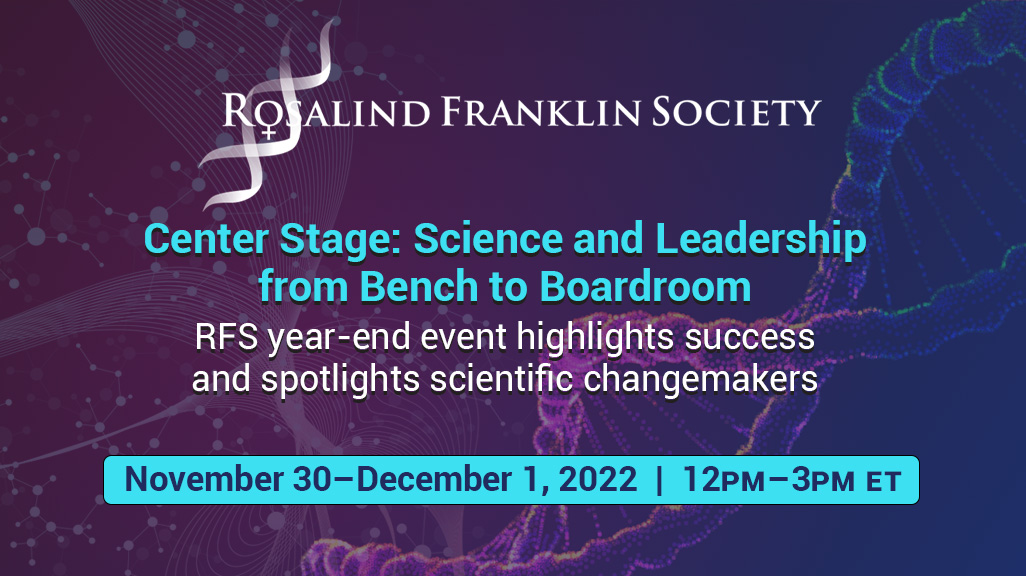
We know you will want to hear these presentations from prestigious scholars, authors, award winners, government leaders from the National Cancer Institute (NCI), Advanced Research Projects Agency for Health (ARPA-H), the Food and Drug Administration, and one scientist's very personal story of insight and recovery from a massive stroke that profoundly shaped her life and career.
Join us to continue the celebration of Dr. Franklin's life, work, and symbolic power, by recognizing outstanding women in science, cultivating more significant opportunities, and inspiring new generations of women. Register now.
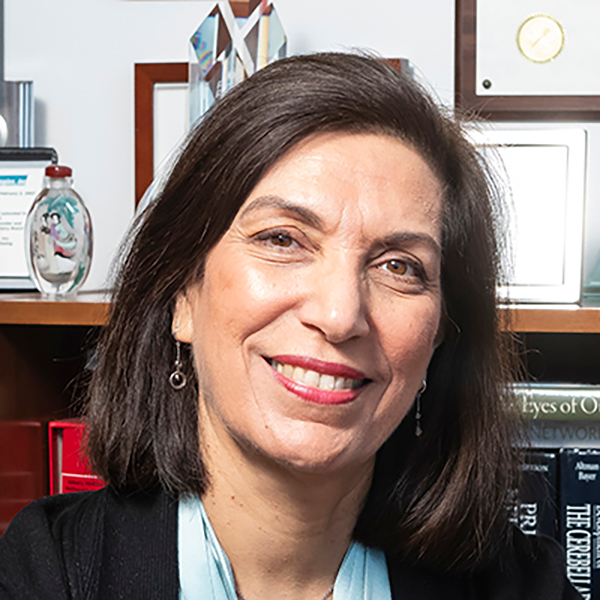 Huda Y. Zoghbi, winner of the prestigious 2022 Kavli Prize in Neuroscience, will be speaking at our event. Dr. Zoghbi is a professor of pediatrics, molecular and human genetics, neuroscience, and neurology at Baylor College of Medicine and is director of the Jan and Dan Duncan Neurological Research Institute at Texas Children’s Hospital. Huda Y. Zoghbi, winner of the prestigious 2022 Kavli Prize in Neuroscience, will be speaking at our event. Dr. Zoghbi is a professor of pediatrics, molecular and human genetics, neuroscience, and neurology at Baylor College of Medicine and is director of the Jan and Dan Duncan Neurological Research Institute at Texas Children’s Hospital.
Please continue to share important news and opportunities with us so that we may share it with you and others who are committed to supporting the careers of exceptional women in science.
Stay safe and sound,

Karla Shepard Rubinger
Executive Director
Rosalind Franklin Society
www.rosalindfranklinsociety.org

Priya Kishnani receives 2022 North Carolina Award for Science.
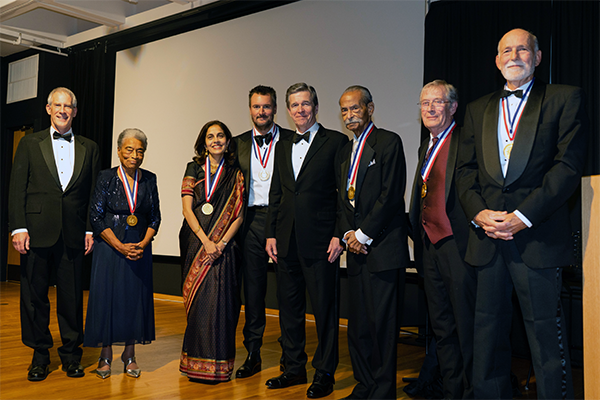
Congratulations to Priya Kishnani, MD, MBBS, Chen Family Distinguished Professor of Pediatrics and chief of the Division of Medical Genetics at the Duke University School of Medicine. She received one of North Carolina’s highest civilian honors, the North Carolina Award, on November 15 for her contributions to science. As the lead principal investigator, Kishnani designed and conducted clinical trials that led to the first-ever FDA-approved treatment for Pompe disease. Read more.
Call for nominations for the Lasker Awards.
The Lasker Foundation seeks nominations of outstanding candidates; nominations of women and minorities are encouraged. Lasker Awards will be offered in three categories in 2023: Basic Research, Clinical Research, and Special Achievement. The Public Service Award, presented every other year, will next be given in 2024. Read more.
Call for nominations: The 2023 Vilcek-Gold Award for Humanism in Healthcare.
The Vilcek Foundation and The Arnold P. Gold Foundation have announced an open call for nominations for the 2023 Vilcek-Gold Award for Humanism in Healthcare. Nominations will be accepted through January 31, 2023, at 5 p.m. Eastern Standard Time. Read more.
Does anything live at the bottom of the ocean?
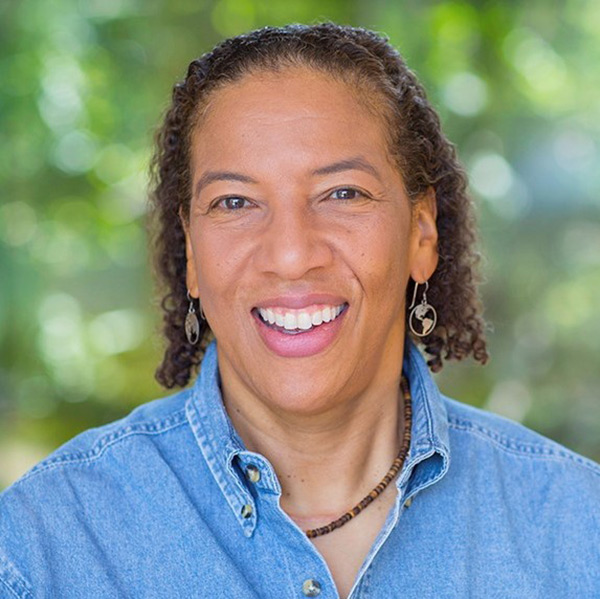
Oceanographer Dawn Wright talks with film producer Jeffrey Silver about what life forms she saw on her recent dive to the bottom of the ocean in the latest #AskAScientist episode. Read more.(Photo by American Academy of Arts & Sciences)
Celebrating Marie Tharp.

Marie Tharp put ocean floors on the map. This interactive #GoogleDoodle celebrates Marie Tharp—American geologist and cartographer who found evidence of continental drift along the seafloor. Learn more about her life's work here. Photo: Marie Tharp. Courtesy of Lamont-Doherty Earth Observatory and the estate of Marie Tharp
The feminist test we keep failing: Lost Women of Science Podcast, Season 3 Bonus Episode.
There’s a test that we at Lost Women of Science seem to fail again and again: the Finkbeiner test. Named for science writer, Ann Finkbeiner, the Finkbeiner test is a checklist for writing profiles of female scientists without being sexist. Read more.
We’re living in a new era for women in space, on screen and off.
They began their careers as human computers, a mathematical equivalent of the secretarial pool used in many research centers at the time. Read an excerpt from the new book, “Space Craze,” by Smithsonian space historian Margaret Weitekamp. Read more.
Science couldn't save her, so she became a scientist.
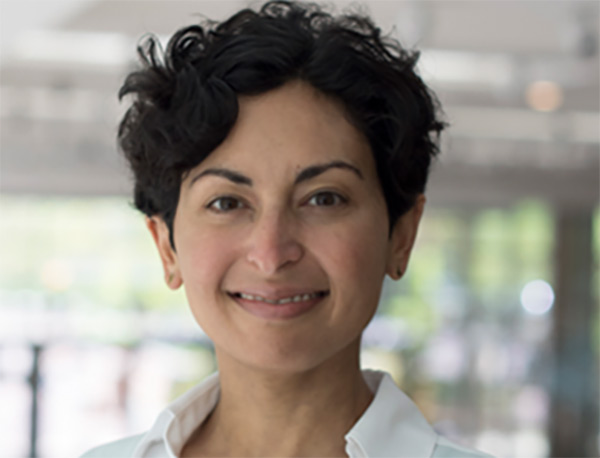
Eric Minikel and Sonia Vallabh are Ph.D. students in Stuart Schreiber's laboratory at the Broad Institute. In 2010, Sonia’s mother abruptly developed and died of prion disease. The following year, Sonia learned she had the same mutation that caused her mother’s disease. Thus, Sonia and her husband Eric began studying biology, with the long-term goal of designing small molecule therapeutics for prion diseases. Sonia Vallabh and Eric Minikel join Short Wave to tell their story in this second of three episodes on prion disease. Read more. (Photo: Broad Institute)
Raising the profile of women in STEM across the globe.
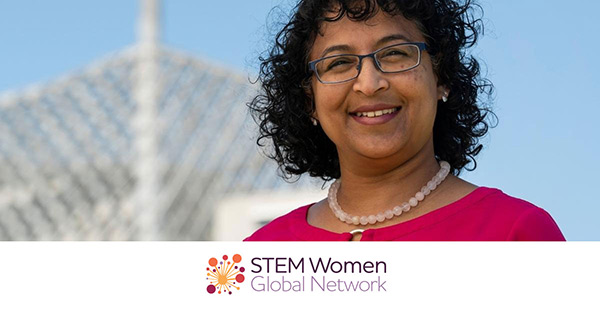
Women working in STEM fields will be able to raise their profile and discover opportunities to progress their careers following the launch of STEM Women Global in November. STEM Women Global is an initiative of the Australian Academy of Science with the support of the InterAcademy Partnership (IAP), the Association of Academies and Societies of Sciences in Asia (AASSA), the Network of African Science Academies (NASAC) and the Inter-American Network of Academies of Sciences (IANAS). Read more. Photo: Pamela Naidoo-Ameglio, Group Executive of the Nuclear Precinct at the Australian Nuclear Science and Technology Organisation (ANSTO).
Marianna Limas, Social Media Manager
Nilda Rivera, Partnership and Events Manager
|
|
|
Dear Colleagues,
I am pleased to include another issue of RFS Briefings with some timely and encouraging updates on women in science.
Equity and representation in science matter more than ever, and the Rosalind Franklin Society continues its mission to recognize, foster, and advance the critical contributions of women and underrepresented minorities in science. Our annual year-end conference highlights the innovators and changemakers with unique experiences and leadership.
Join us for this indispensable, two-day complimentary virtual summit (November 30 and December 1) showcasing dynamic leaders. The program includes an impressive line-up of prestigious award winners in science, as well as a panel to highlight the unique path of scientists navigating the often-tumultuous waters of PhD to CEO. You will also want to hear first-hand accounts from major new appointments in the federal government and tune in to the presentation that shows a fascinating look back at the Lost Women of Science.
We know you will want to hear these presentations from prestigious scholars, authors, award winners, government leaders from the National Cancer Institute (NCI), Advanced Research Projects Agency for Health (ARPA-H), the Food and Drug Administration, and one scientist's very personal story of insight and recovery from a massive stroke that profoundly shaped her life and career.
Join us to continue the celebration of Dr. Franklin's life, work, and symbolic power, by recognizing outstanding women in science, cultivating more significant opportunities, and inspiring new generations of women.

Please continue to share important news and opportunities with us so that we may share it with you and others who are committed to supporting the careers of exceptional women in science.
Stay safe and sound,

Karla Shepard Rubinger
Executive Director
Rosalind Franklin Society
www.rosalindfranklinsociety.org
Dr. Isabelle Aubert elected into the Canadian Academy of Health Sciences.
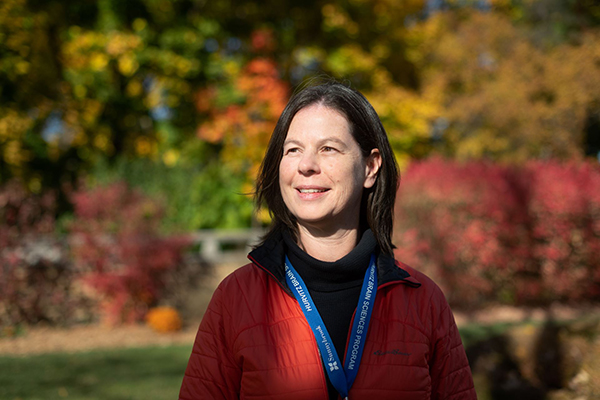
Dr. Isabelle Aubert, senior scientist at Sunnybrook Research Institute, is one of the 71 new Fellows elected into the Canadian Academy of Health Sciences (CAHS) this Fall. Dr. Aubert is exploring brain health and repair using drug, cell and gene therapies. This collaborative work led her to discover that, in addition to serve as a non-invasive approach to deliver therapeutics to the brain, the modulation of the blood-brain barrier with transcranial focused ultrasound can promote the regenerative capacity of the brain. Read more.
Geophysicist Leigh Royden looks at Earth from the top down.
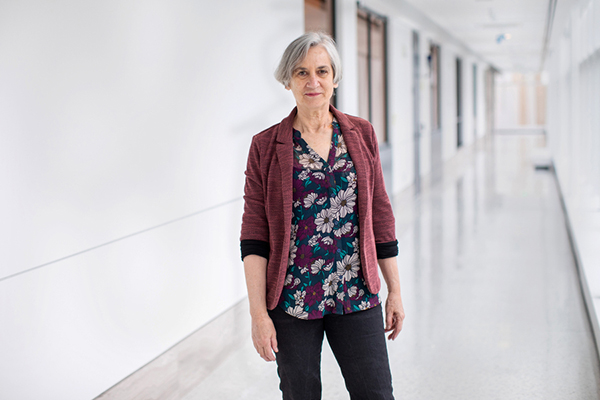
Leigh Royden, the Cecil and Ida Green Professor of Geology and Geophysics, combines geology and geophysics to study the Earth’s crust, how it changes when tectonic plates collide, and how that activity is connected to processes deep in the mantle. A member of MIT’s faculty since 1984, Royden’s journey in the Earth sciences has taken her to geologically interesting sites around the world. Read more. Photo: Scott Eisen.
New NAS awards honor science communication in “post-truth world”
Earlier this month, the National Academies of Sciences, Engineering, and Medicine announced the recipients of the inaugural Eric and Wendy Schmidt Awards for Excellence in Science Communication. The Scientist spoke to recognition awardee and paleoecologist Jacquelyn Gill about the prize, which she won for her Twitter presence, lay-level writing, and Warm Regards podcast. Read more.
Five L’Oréal fellows awarded funding to conduct research and mentor the next generation of women in STEM.
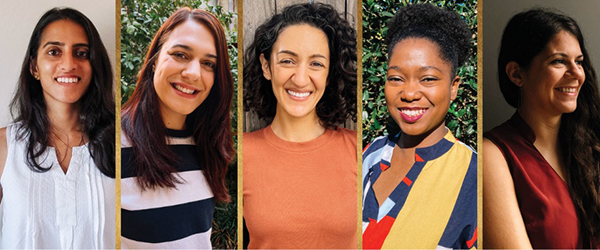
Sandya Subramanian, Sarah Burnett, Marina LaForgia, Sikoya Ashburn and Margot Wohl are the recipients of the 2022 L'Oréal USA For Women in Science Fellowship. | L'Oréal USA
A Nov. 2 event hosted by the National Academies of Sciences, Engineering, and Medicine celebrated the contributions of women in science and addressed the need to dismantle systemic barriers to women’s leadership in STEM. Alongside several more senior women scientists, the five fellows also shared their stories at “Breaking Glass: Advancing Women Leaders in Science.” Read more.
Dr. Nina Schor named NIH Deputy Director for Intramural Research.
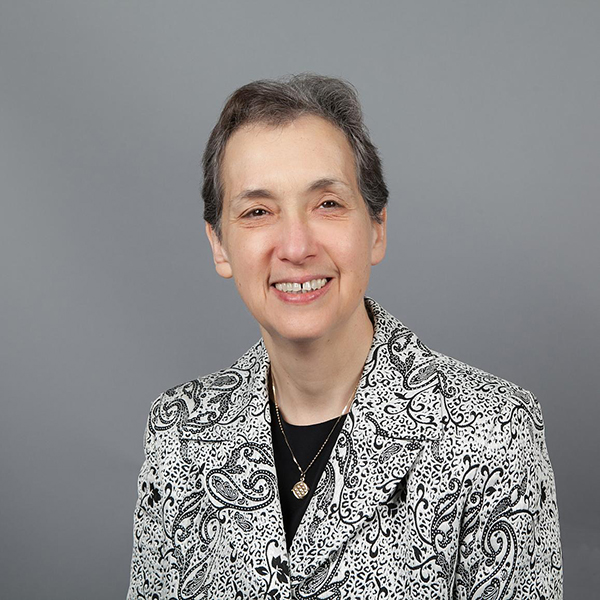
In this role, Dr. Nina Schor will lead the NIH Intramural Research Program (IRP) and facilitate coordination and collaboration among the 24 NIH institutes and centers that are a part of NIH’s research community. She also will spearhead efforts to train the next generation of biomedical and behavioral researchers at NIH, as well as foster a diverse and inclusive culture across the IRP. Read more.
Inclusive STEM learning environments: Six institutions committed to progress.
The data from the 2019 Interagency Working Group on Inclusion in STEM report show that only one out of every 10 federal STEM workers is from a racial or ethnic excluded group. On November 1, 2022, HHMI is making the first grants in its Driving Change initiative, awarding $2.5 million each to six universities: Loyola Marymount University in Los Angeles, the Ohio State University, the University at Albany, University of Maryland Eastern Shore, University of Montana, and University of Virginia. Read more.
Saying ‘no’ in science isn’t enough: When women refuse requests to do unrewarded tasks, another female colleague often gets asked instead.
Studies show that women, regardless of occupation, take on the bulk of non-promotable tasks (NPTs). These tasks can be found throughout any institution — examples include helping other people with their work, serving on governance committees, organizing events, mentoring and even resolving office conflicts. Improving the distribution of NPTs is an organizational problem: employers and team leaders must lead the change. Read more.
This 37-year-old NASA engineer is designing a spacesuit for women on the side: ‘It’s not just cool, it’s necessary’
“Spacesuits have never been designed with women in mind,” Sabrina Thompson points out, despite the fact that women have been instrumental in designing space suits for astronauts. Sabrina Thompson is an aerospace engineer for NASA as well as the CEO and founder of the streetwear brand Girl in Space Club. Read more.
Marianna Limas, Social Media Manager
Nilda Rivera, Partnership and Events Manager |
|
Dear Colleagues,
I am pleased to include another issue of RFS Briefings with some timely and encouraging updates on women in science.
Our annual year-end meeting is almost here.
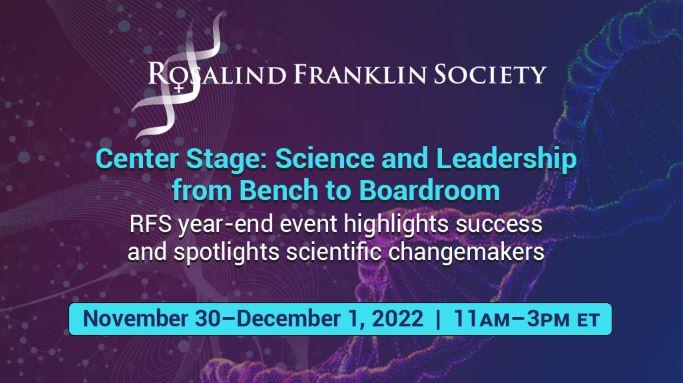
We are in the process of taping an impressive agenda which will showcase amazing leaders who you may not have heard from! We will again present an impressive panel of prestigious Award winners in science, and a panel to highlight the unique path of scientists From PhD to CEO. As in the past, you will also want to hear first-hand from major new appointments in the Federal government and the White House. We will also present a fascinating look back at Lost Women of Science.
These productions will be shared through broadcast on November 30th and December 1st, 12:00a.m. - 3:00p.m. (EST).
A link for registration will be posted soon. We know you will want to hear these presentations from prestigious scholars, authors, award winners, government leaders from NCI, ARPA-H, and the FDA. and a scientist's very personal story of insight and recovery.
Please continue to share important news and opportunities with us so that we may share it with you, and others who are committed to supporting the careers of exceptional women in science.
Stay safe and sound,

Karla Shepard Rubinger
Executive Director
Rosalind Franklin Society
www.rosalindfranklinsociety.org

M.I.T. Names a Duke Provost as Its New President.
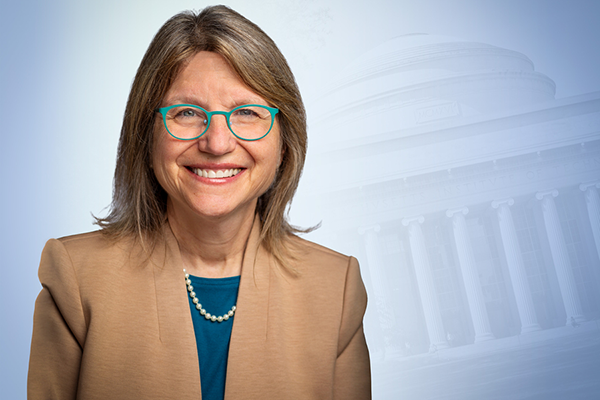
M.I.T. announced a new president, Sally Kornbluth, a cell biologist and provost at Duke University. She will be the second female president of the university, and will join a long list of women in its top leadership ranks. The provost, chancellor, dean of science and chair of the M.I.T. Corporation, the school’s governing body, are all women. Read more. (Image: Jared Lazarus, Duke University, edited by MIT News)
The University of North Texas Health Science Center at Fort Worth confirms Dr. Sylvia Trent-Adams as new president.
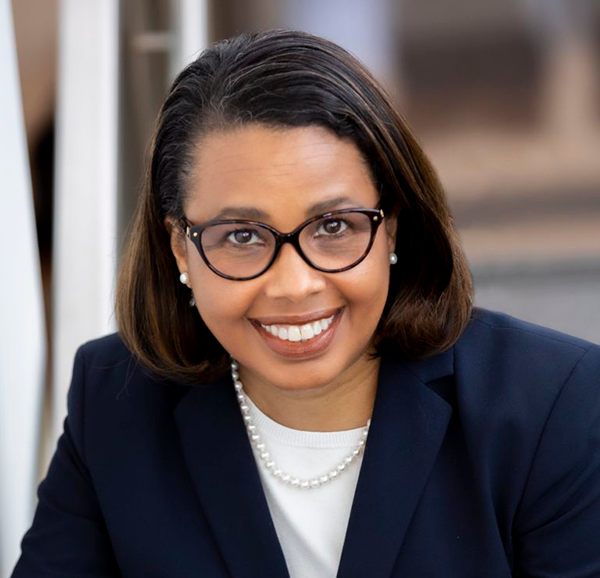
Dr. Sylvia Trent-Adams was the first Black woman to serve as Deputy Surgeon General of the U.S. Public Health Service Commissioned Corps., then the first Black woman to rise to the level of Principal Deputy Assistant Secretary for Health. “Dr. Sylvia Trent-Adams is an extraordinarily accomplished academic health care leader,” said Dr. Michael R. Williams, chancellor of the UNT System. Read more.
She’s made 1,750 Wikipedia bios for female scientists who haven’t gotten their due.
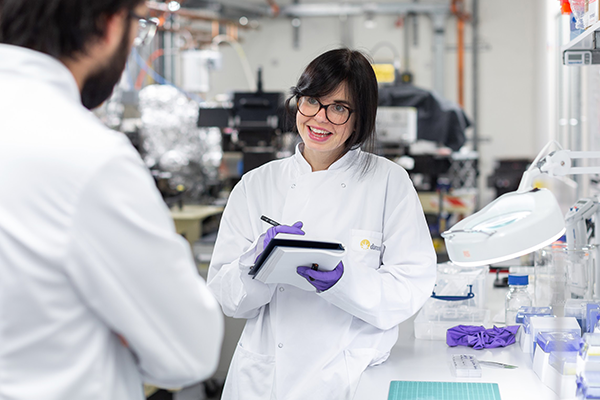
Jess Wade, 33, a British physicist, spends her spare time writing Wikipedia biographies for women and minority scientists. “Wikipedia is a really powerful way to give credit to people who, for a long time, have been written out of history,” she said. “Not only do we not have enough women in science, but we aren’t doing enough to celebrate the ones we have.” Read more. (Image: Jess Wade)
The Vilcek Foundation announces the recipients of the 2023 Vilcek Foundation Prizes.

Biyu J. He receives the Vilcek Prize for Creative Promise in Biomedical Science for her leadership in the field of cognitive neuroscience, and for her groundbreaking discoveries on the biological bases of perceptual cognition and subjective experience. Read more.
Women researchers are cited less than men. Here’s why—and what can be done about it.
Women’s scientific contributions are often undervalued and cited less often than those of their male counterparts, including in neuroscience, astronomy, medicine—and, according to two new studies, physics. How can researchers and institutions address gender inequality in academia? Read more.
Obstetrics “giant” Beryl Benacerraf dies at 73.
Beryl Benacerraf, best known for discovering that congenital abnormalities such as Down syndrome could be diagnosed through prenatal ultrasound, died October 1 of late-stage cancer. She was a renowned radiologist and professor at Brigham and Women’s Hospital. Read more.
On the lookout for viruses that could leap from animals into humans.
Sara Sawyer, a virologist at the BioFrontiers Institute of the University of Colorado, Boulder, spoke to Nature about what a virus must do to make the leap between species, and describes a worrying discovery her laboratory has made regarding a future threat. Read more.
A journey of joy and uncertainty in physics.
This article is part of a series of essays written by Black physicists and co-published with Physics Today as part of #BlackInPhysics week 2022, an event dedicated to celebrating Black physicists and their contributions to the scientific community. Read more.
Marianna Limas, Social Media Manager
Nilda Rivera, Partnership and Events Manager |
|
Dear Colleagues,
I am pleased to include another issue of RFS Briefings with some timely and encouraging updates on women in science.
Please continue to share important news and opportunities with us so that we may share it with you, and others who are committed to supporting the careers of exceptional women in science.
Stay safe and sound,

Karla Shepard Rubinger
Executive Director
Rosalind Franklin Society
www.rosalindfranklinsociety.org

Stanford’s Carolyn Bertozzi wins Nobel in chemistry.
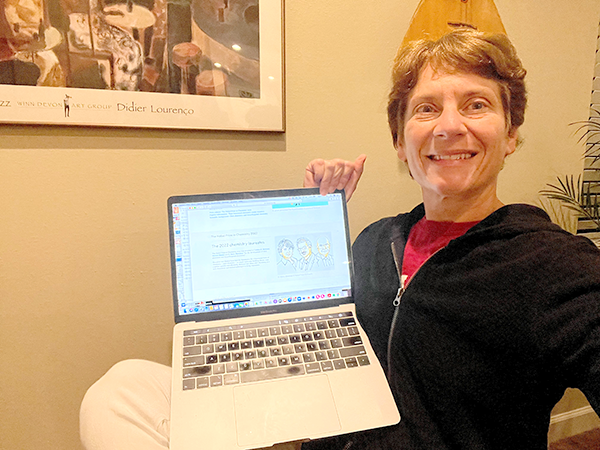
Stanford chemist Carolyn Bertozzi was awarded the Nobel Prize in chemistry for her development of bioorthogonal reactions, which allow scientists to explore cells and track biological processes without disrupting the normal chemistry of the cell. “In pioneering the field of bioorthogonal chemistry, Carolyn invented a new way of studying biomolecular processes, one that has helped scientists around the world gain deeper understanding of chemical reactions in living systems. Her work has had remarkable real-world impact, unleashing new diagnostic and therapeutic approaches to treat disease. Carolyn is so deserving of this honor, and all of us at Stanford are tremendously proud to call her one of our own,” said Stanford President Marc Tessier-Lavigne. Read more. (Image: Nobel Prize on Twitter)
5 women who should have won a Nobel Prize.
“Two decades ago it would be rare that I would find a woman, for example, to designate as a citation laureate, but as we move forward in time, we find there are more women… in the top ranks of researchers,” said David Pendlebury, a senior analyst at Clarivate, ahead of the 2022 Nobel Prize announcement. There’s no shortage of worthy female candidates to be the next science laureates. Here are five female scientists and the life-changing discoveries they have made. Read more.
Overlooked no more: Maria Orosa, inventor of banana ketchup.
Maria Orosa, a food scientist and nationalist, sought to make the Philippines less dependent on imported food. Banana ketchup was one result. First mass-produced in 1942, banana ketchup has become so popular that Heinz, arguably the king of tomato ketchup, now makes its own version. Heinz introduced it in 2019, saying it was doing so “in honor of Maria Orosa” Read more.
Monica Bertagnolli begins work as 16th director of the National Cancer Institute.
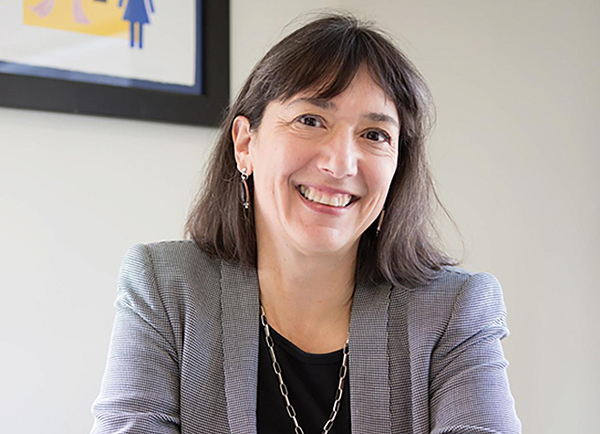
Monica M. Bertagnolli, M.D., started as the 16th director of the National Cancer Institute (NCI), part of the National Institutes of Health (NIH). She is the first woman to hold the position of NCI director. Dr. Bertagnolli succeeds Norman E. Sharpless, M.D., who stepped down as director in April 2022. Douglas R. Lowy, M.D., has been NCI’s acting director since April 30, 2022. Read more.
Dr. Audrey Evans, cancer specialist who gave Families a home, dies at 97.
Dr. Audrey E. Evans, a pediatric oncologist in Philadelphia who, seeing that her out-of-town patients’ families sometimes struggled to find affordable accommodations when their children needed extended care helped create the first Ronald McDonald House, a concept that has blossomed into a worldwide network, died last week at her home in Philadelphia. She was 97. Read more.
World’s largest science prize for discovering a new mechanism of cellular organization.
Anthony Hyman, the managing director of the Max Planck Institute of Molecular Cell Biology and Genetics (MPI-CBG), and Clifford Brangwynne, Professor of Chemical and Biological Engineering at Princeton University and Howard Hughes Medical Institute, have been honored with one of the three 2023 Breakthrough Prizes in Life Sciences. Anthony Hyman was a speaker at RFS. Following his wife’s gruesome murder at a conference, his presentation addressed the challenges for women and the responsibility of leaders in the field to address this. Read more.
Feinstein Institutes’ Betty Diamond receives Women in Medicine and Science Leadership Award.
The award, conferred by Association of American Medical Colleges, recognizes outstanding individual and organizational contributions to advancing women leaders in academic medicine and science. Read more.
Research!America to recognize Dr. Tabak and other leaders in medical and health research.
Three distinguished women in science and medicine among those honored by Research!America. The award honors individuals who show outstanding commitment to sustaining the nation’s world-class leadership in medical and health research. Read more.
ASU professor to study new genome editing tools with NIH Innovator Award.
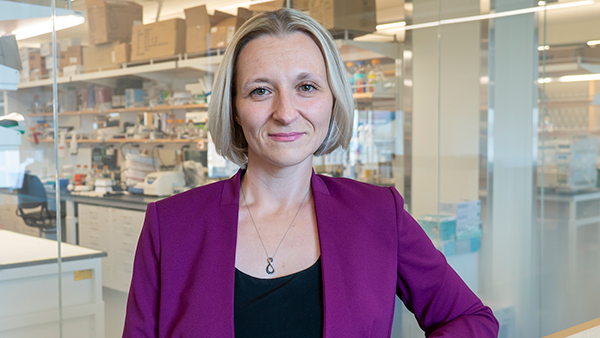 Assistant Professor Audrey Lapinaite from ASU's School of Molecular Sciences. Photo by Mary Zhu Assistant Professor Audrey Lapinaite from ASU's School of Molecular Sciences. Photo by Mary Zhu
Assistant Professor Audrey Lapinaite from Arizona State University’s School of Molecular Sciences and the Biodesign Institute’s ASU-Banner Neurodegenerative Disease Research Center has been awarded a prestigious National Institutes of Health (NIH) Director’s New Innovator Award. The award specifically “supports exceptionally creative early-career investigators who propose innovative, high-impact projects,” targeting investigators within 10 years of completing their doctoral degree or postdoctoral training. Read more.
UAB neuroscientist earns new innovator award from NIH.
University of Alabama at Birmingham neuroscientist Summer Thyme, Ph.D., is a recipient of the Director’s New Innovator award from the National Institutes of Health. The award is part of the NIH High-Risk, High-Reward Research program, supported by the Common Fund, which has bestowed 103 new research grants to support highly innovative scientists who propose visionary and broadly impactful, meritorious behavioral and biomedical research projects. Read more.
Can you #FindThatLizard? One scientist is tapping the tools of social media to transform her field.
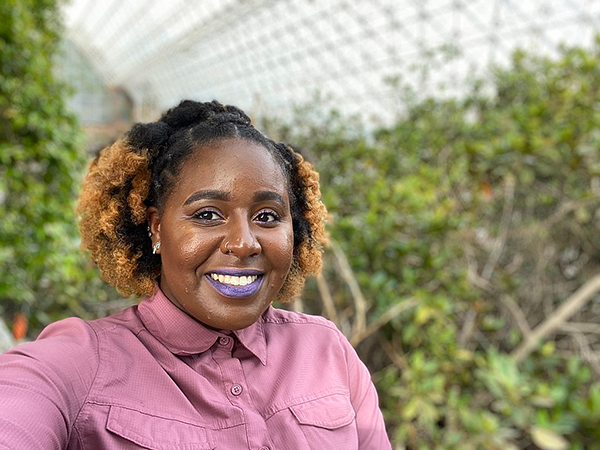
Scientists of color are disrupting the rules of historically colonial institutions in STEM and academia. For Earyn McGee, that means engaging with her public through games. Earyn is a herpetologist and the creator of #FindThatLizard, and she looks for lizards in Inglewood’s Kenneth Hahn park. Read more. (Image: Wikipedia)
Call for Nominations: Standing Committee on Aerospace Medicine and the Medicine of Extreme Environments.
The Standing Committee on Aerospace Medicine and the Medicine of Extreme Environments, at the National Academies of Sciences, Engineering, and Medicine, is sponsored by the National Aeronautics and Space Administration (NASA). The standing committee coordinates with NASA’s Office of the Chief Health and Medical Officer to become informed of existing conditions and emerging issues related to medical care in space and define prospective activities (such as studies or analysis of medical needs and/or approaches to addressing those needs) to be conducted at the National Academies. Read more.
Jessica Wade makes Wikipedia bios for unknown women scientists.
London-based physicist Jessica Wade has become something of a phenomenon herself in her very personal campaign to bring more girls to study and work in STEM (science, technology, engineering and mathematics). Wade has written more than 1,600 Wikipedia entries for long-ignored women scientists, and she has firm beliefs on ideas on how to support girls interested in the field. Read more.
MacArthur Foundation announces 25 new ‘Genius’ grant winners.
The 2022 awards are going to artists, activists, scholars, scientists and others who have shown “exceptional creativity.” The grants are a bit bigger than before: $800,000 over five years. The 2022 MacArthur fellows include a sociologist working to understand what drives people to own guns; an astrodynamicist trying to manage “space traffic” and ensure that satellites don’t crash into each other in Earth’s orbit. Read more.
Call for Nominations.
The Gruber Foundation invites nominations on behalf of individuals whose achievements in Cosmology, Genetics, or Neuroscience would make them suitable candidates for recognition through the 2023 Gruber International Prize Program. Each prize, which is accompanied by a $500,000 unrestricted monetary award, is designed both to recognize groundbreaking work in each field and to inspire additional efforts that effect fundamental shifts in knowledge and culture. Read more.
Marianna Limas, Social Media Manager
Nilda Rivera, Partnership and Events Manager
|
|
Dear Colleagues,
I am pleased to include another issue of RFS Briefings with some timely and encouraging updates on women in science.
Please continue to share important news and opportunities with us so that we may share it with you, and others who are committed to supporting the careers of exceptional women in science.
Stay safe and sound,

Karla Shepard Rubinger
Executive Director
Rosalind Franklin Society
www.rosalindfranklinsociety.org

NOAA’s new Chief Scientist on preparing for climate’s biggest perils.
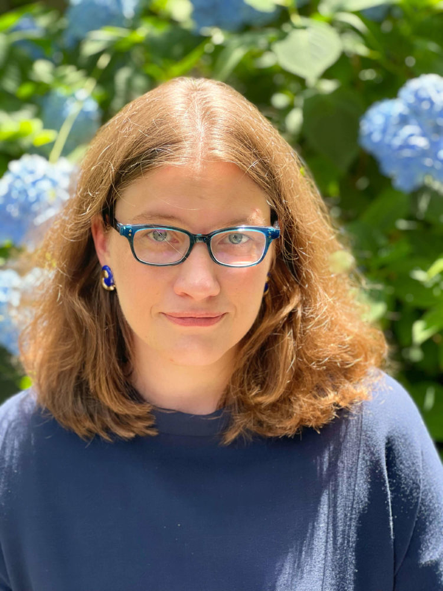
Sarah Kapnick is the third woman in NOAA’s history to be appointed to the role of chief scientist. “I have always been really interested in climate – and climate risk. My undergraduate degree was in theoretical mathematics with a certificate in finance and research on geophysical fluid dynamics,” says Sarah. Read more. (Credit: NOAA)
The Science & Technology Action Committee (STAC) released a statement applauding the Senate’s confirmation of Dr. Arati Prabhakar’s nomination as the Director of the White House Office of Science and Technology Policy (OSTP).
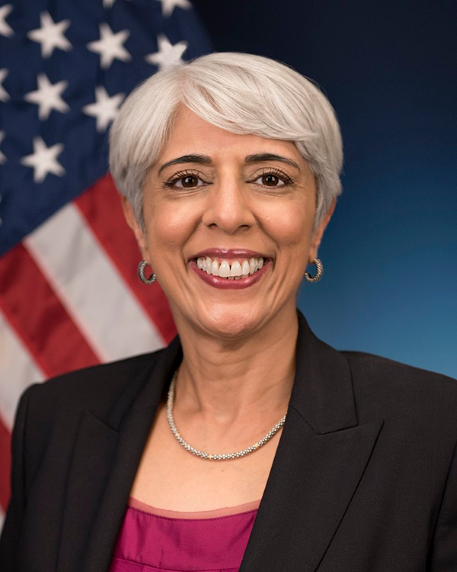
“Dr. Arati Prabhakar’s bipartisan confirmation as OSTP Director is a victory for the advancement of science, technology, and innovation in the United States. This pivotal position requires working across the federal government in these policy areas to drive economic growth, create jobs, and address critical threats to Americans’ public health and wellbeing. Dr. Prabhakar has the unique opportunity to unleash U.S. innovation and reassert America’s global leadership in tackling the extraordinary threats society faces today. She is the ideal scientist and leader for this crucial role.” Read more. (Image: Wikipedia)
Heinz Family Foundation announces $1.5 million in awards.
The Heinz Family Foundation announced the recipients of the 27th Heinz Awards, which will present unrestricted cash awards totaling $1.5 million to seven Americans for outstanding contributions in the categories of the Arts, the Economy and the Environment. Among the recipients is Anne C. Evens, CEO of Elevate, who has dedicated her life’s work to transforming energy efficiency improvements in affordable housing and to the mission of Elevate, which works to ensure that everyone has equal access to clean and affordable heat, power and water in their homes and communities. Read more.
How the US can harness the possibilities of biotechnology.
To accelerate the transformation of biotechnology advancements into solutions for real world problems, the Biden-Harris administration has launched the Biotechnology and Biomanufacturing Initiative through a new executive order, which has the potential to improve the everyday lives of all people. Read more.
Workforce Diversity Initiatives in the CHIPS and Science Act.
The new CHIPS and Science Act includes a variety of provisions aimed at promoting diversity, equity, and inclusion within the STEM workforce through grant support and workforce research, and by instituting new requirements for data collection and ethical research conduct. Read more.
Apply now for the 2023 Blavatnik National Awards for Young Scientists.
The Blavatnik National Awards recognize exceptional individuals and their accomplishments in the areas of Life Sciences, Physical Sciences & Engineering, and Chemistry. One Blavatnik National Awards Laureate will be selected from each disciplinary category and will receive $250,000 in unrestricted funds. Read more.
The next round of Jane Coffin Childs Postdoctoral Fellowships opens on October 3rd, 2022 with a deadline of noon EST on February 1st, 2023.
Please encourage creative and talented postdocs (or soon to be postdocs) in your network to apply. The Jane Coffin Childs Memorial Fund for Medical Research (JCC Fund) was established by the Childs Family in 1937, to honor the memory of Jane Coffin Childs who died of cancer in 1936. Read more.
Season 3 of the Lost Women of Science podcast launches September 22nd.
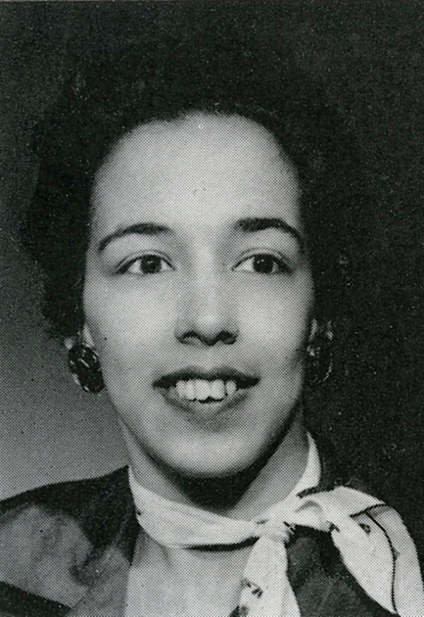
Yvonne Y. Clark, known as YY throughout her career, has also been nicknamed “The First Lady of Engineering,” because of her groundbreaking achievements as a Black female mechanical engineer. Season 3 of Lost Women of Science traces her trajectory, from her unconventional childhood interest in fixing appliances to civil rights breakthroughs in the segregated South; from her trailblazing role at historically Black colleges and universities to her work at NASA. What can YY teach us about what it means to be the first in a scientific field, especially as a Black woman in America? Read more. (Image: Wikipedia)
NSF launches entrepreneurial fellowships for engineers and scientists.
The U.S. National Science Foundation announced a new $20 million investment in Entrepreneurial Fellowships through a multi-year cooperative agreement with Activate. Read more.
Dr. Emmanuelle Charpentier: ‘We all need to ask ourselves what kind of world we want to live in’
In early September, Charpentier traveled to Yerevan, Armenia to be one of the main speakers at the Starmus VI Festival. In her interview with EL PAÍS, the scientist explains that she is still focused on the same goal as she was years ago: looking for new forms of gene editing to combat antibiotic-resistant infections. Read more.
COVID-19 dashboard creator Lauren Gardner wins Lasker-Bloomberg Public Service Award.
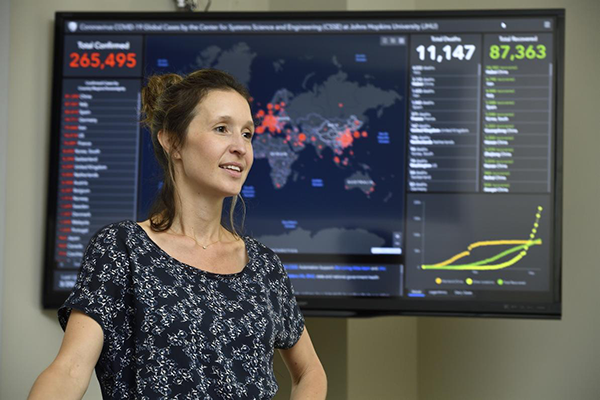
Lauren Gardner, a professor of civil and systems engineering at Johns Hopkins University's Whiting School of Engineering, has won the 2022 Lasker-Bloomberg Public Service Award, America's top biomedical research prize. Read more. (Image: Will Kirk, JHU)
Parker to lead Artificial Intelligence Research and Education Initiative at UT.
Lynne Parker is returning to the University of Tennessee, Knoxville, after completing a four-year post as deputy United States chief technology officer and director of the National Artificial Intelligence Initiative Office within the White House. Read more.
Cleveland Clinic researchers discover new signal for triggering human immune response.
Michaela Gack and her team at the Cleveland Clinic have discovered a new "priming signal" that triggers immune system responses to infection. Born in Germany, Gack received a Vilcek Prize for Creative Promise in 2017. Read more.
Winners of 2023 Breakthrough Prize announced.
The Breakthrough Prize Foundation has announced the winners of the 2023 Breakthrough Prizes in life sciences, fundamental physics, and mathematics. But no women for the 3 key prizes… Read more.
Marianna Limas, Social Media Manager
Nilda Rivera, Partnership and Events Manager
|
|
|